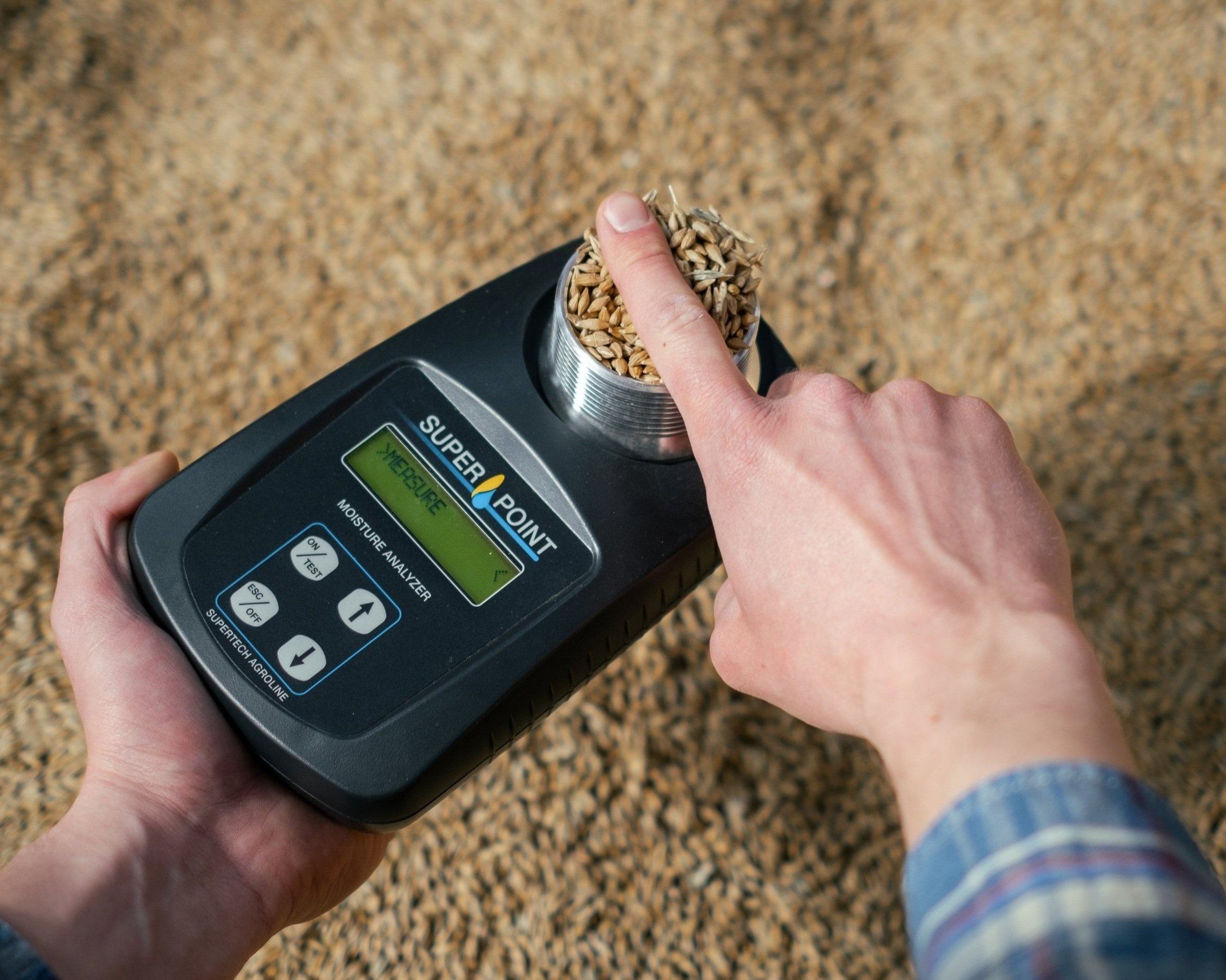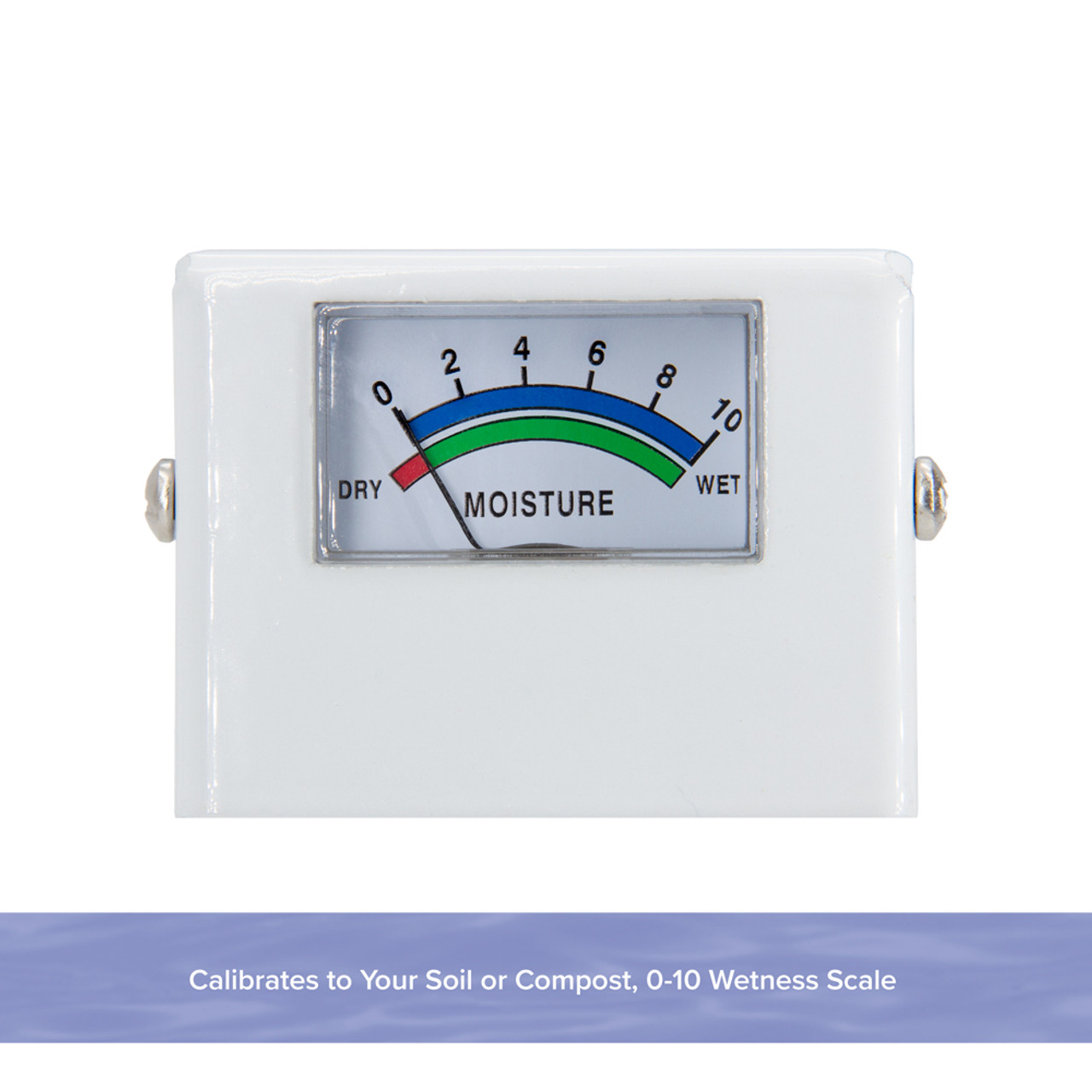The Ultimate Overview to Picking the Right Moisture Meter for Your Demands
The Ultimate Overview to Picking the Right Moisture Meter for Your Demands
Blog Article
The Ultimate Overview to Moisture Meters: A Comprehensive Overview and How They Can Conserve You Money
In the realm of building upkeep, building and construction, and different markets, the importance of properly gauging wetness levels can not be overemphasized. Wetness meters serve as indispensable devices in finding and keeping an eye on moisture material in products, helping in avoiding pricey problems and ensuring the top quality of products. Understanding the subtleties of different sorts of wetness meters, their applications, and the potential cost-saving advantages they provide can be a game-changer for businesses and specialists alike. Uncovering exactly how these devices can not just enhance processes yet likewise add to monetary savings is a trip worth starting.
Kinds of Moisture Meters
One typical type is the pin-type wetness meter, which measures the electrical resistance in between 2 pins placed right into a product. Pinless dampness meters, on the other hand, use electromagnetic sensor plates to check a bigger area without causing damages to the material's surface.
Infrared dampness meters measure the thermal properties of a material to identify its dampness web content non-invasively, making them useful for applications where pin or pinless meters may not be suitable. Comprehending the various types of wetness meters readily available can help industries pick the most proper tool for their specific dampness measurement requirements.

Advantages of Utilizing Moisture Meters

Furthermore, using dampness meters can lead to raised energy effectiveness. By recognizing areas with high dampness degrees, such as leaks or poor insulation, modifications can be made to enhance power preservation and lower energy prices. In farming setups, dampness meters play an essential duty in optimizing crop returns by enabling farmers to keep track of soil wetness levels and make educated irrigation choices. On the whole, the advantages of utilizing dampness meters cover throughout various sectors, supplying affordable options and advertising much better quality control practices.
How to Choose the Right Moisture Meter
Picking the proper wetness meter includes thinking about essential elements such as material compatibility, dimension variety, and calibration precision. When selecting a moisture meter, it's necessary to make certain that the meter is suitable for the certain material you will certainly be screening. Different materials have differing electric homes that can impact wetness analyses, so picking a meter developed for your product is critical for exact results. In addition, take into consideration the dimension variety of the dampness meter. Make certain that the meter can identify dampness degrees within the array required for your applications. Calibration accuracy is another critical variable to bear in mind (Moisture Meter). Choose a moisture meter with reliable calibration to guarantee precise and regular analyses. Some meters might require regular calibration changes, so understanding the calibration procedure is necessary. By thoroughly reviewing these elements, you can pick a moisture meter that meets your requirements and gives precise wetness measurements for your tasks.
Proper Methods for Moisture Meter Use
To make sure exact moisture readings and make best use of the efficiency of a moisture meter, utilizing proper strategies is crucial. When utilizing a pin-type dampness meter, insert the pins or probes into the product being examined until they make full contact. Ensure the pins are perpendicular to the surface to get the most accurate reading. For pinless moisture meters, hold the device flat against the material and relocate slowly to cover the entire area for an average analysis. It's essential to calibrate the moisture meter according to the material being evaluated to improve accuracy. home Take several readings across the surface and average them out for a much more trusted result. Furthermore, make certain that the material being checked is accommodated to the atmosphere to stop manipulated analyses. Routine maintenance of the moisture meter, such as cleaning the pins or sensing unit, is additionally vital to ensure regular and exact readings. By adhering to these correct methods, individuals can count on their moisture meter to provide reliable dampness levels, aiding in protecting against pricey damages or making sure high quality in different applications.

Cost Savings Via Moisture Meter Applications
How can the strategic utilization of dampness meters lead to substantial expense savings throughout different sectors? Dampness meters play a critical function in expense financial savings by avoiding prospective damages and guaranteeing quality assurance in read the full info here various sectors. In the farming market, dampness meters aid in establishing the optimal time for collecting crops, protecting against over-drying or excess moisture that can influence the final item's high quality. This precise monitoring aids farmers prevent unneeded losses and optimize their yield.

In addition, in the food handling industry, moisture meters are crucial for keeping an eye on product high quality and ensuring compliance with security regulations. By accurately measuring moisture content in foodstuff, suppliers can avoid spoilage, keep freshness, and lower waste, causing considerable expense financial savings. In general, the calculated application of moisture meters is a beneficial financial investment that can bring about considerable price reductions and enhanced performance across different industries.
Verdict
Finally, wetness meters are Our site beneficial devices for finding and measuring dampness levels in numerous materials. By utilizing the right moisture meter and following appropriate strategies, customers can efficiently prevent expensive problems triggered by excess moisture. Buying a top quality dampness meter can cause substantial cost financial savings in the future by identifying prospective problems beforehand and making it possible for timely removal. Inevitably, dampness meters are vital tools for preserving the stability and durability of frameworks and materials.
Wetness meters serve as important devices in discovering and monitoring moisture web content in products, assisting in avoiding expensive problems and ensuring the top quality of items. Infrared dampness meters determine the thermal buildings of a product to determine its moisture web content non-invasively, making them helpful for applications where pin or pinless meters might not be suitable.Dampness meters supply invaluable benefits in accurately monitoring and assessing dampness degrees in varied products and atmospheres. In farming settings, dampness meters play a crucial duty in optimizing crop yields by making it possible for farmers to monitor soil dampness levels and make notified watering decisions.In conclusion, moisture meters are valuable tools for measuring and detecting wetness levels in numerous products.
Report this page